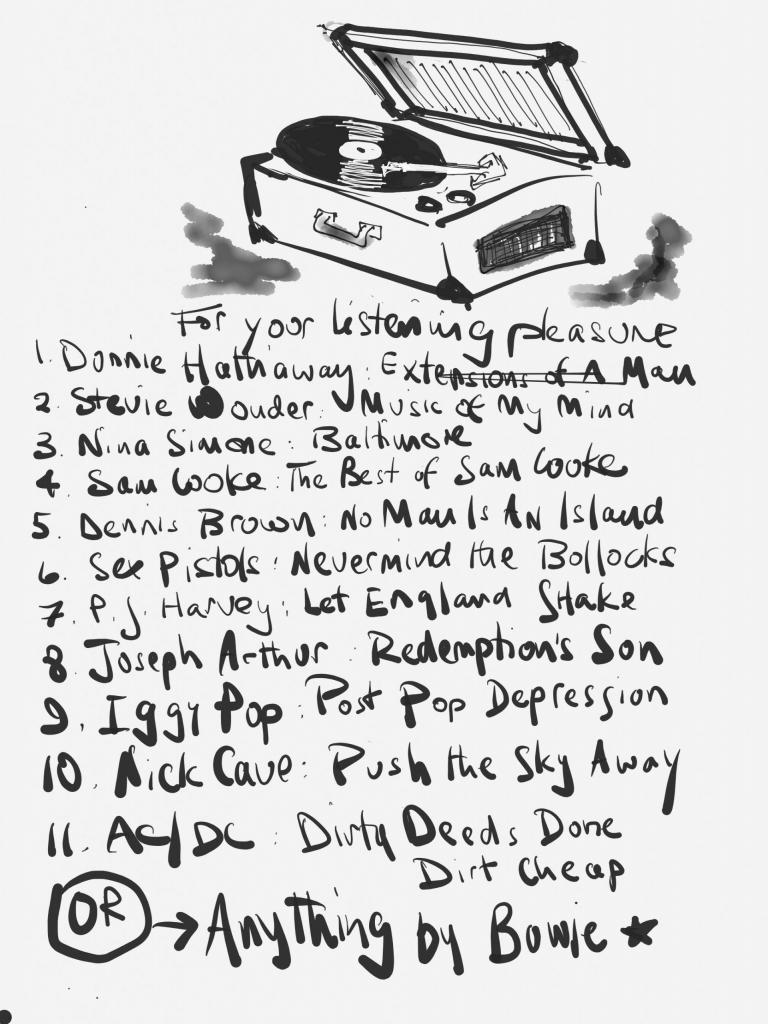42
Apocalypse Will Blossom
At the 2018 Grammy Awards, female artists wore white roses as a sign of solidarity with the Time’s Up initiative against sexual harassment and assault in the entertainment industry. With one exception: Lorde, whose album Melodrama had been nominated for Album of the Year, wore a striking scarlet Valentino gown. To the back of the dress, Lorde had hand-stitched a piece of paper with a poem by the artist Jenny Holzer.
Holzer began her career as a painter, but in the 1970s she abandoned that style in an effort to reach and connect more directly with a broader audience. As an abstract artist, she found meaning in the concepts art expresses, rather than in its form. Taking language as her material, she created a series of posters called Inflammatory Essays and posted them around New York City from 1979 to 1982. Each poster was printed on colored paper and contained exactly one hundred words of text. These inflammatory essays were exactly that: carefully crafted and confrontational meditations drawing from thinkers in the communist and anarchistic traditions, such as Vladimir Lenin, Mao Zedong, Karl Marx, and Friedrich Engels. The posters addressed issues such as violence, consumerism, interpersonal relationships, and abuses of power.
From this series, Lorde had chosen “The Apocalypse Will Blossom” for her dress, declaring it online, “My version of a white rose.” The piece begins with the Psalmic admonition, “Rejoice!”, but immediately declares that we should do so because the times we live in are intolerable. The piece calls for a revolutionary overthrow of power and ends provocatively with the words, “The apocalypse will blossom.” The apocalypse is a revealing, a disclosure of knowledge, or an impartation of revelation. In our time, it has largely negative connotations—perhaps because we always resist the intrusion of upheaval—but an apocalypse is a creative deconstruction and a dismantling of the old world that then reveals a new one. In its essence, the apocalypse encourages the metamorphosis of society. Lorde wore the poem as an act of solidarity, but also as an invitation to participate in this upheaval. Wearing a rose is not enough in the face of abused power, injustice, racism, or bigotry. Real action must be taken, and Lorde was issuing a call to arms.
How does an apocalypse blossom? How are new worlds made possible? Italian philosopher Franco “Bifo” Berardi says there are two kinds of apocalypses: negative and positive. When a society enters a crisis stage, things begin collapsing and we experience the negative apocalypse. What once held us no longer supports us, what once stabilized us now feels unstable. But at the same time, we can glimpse the horizon of possibility, which is how he describes a positive apocalypse. This notion applies to many of the institutions that once gave our lives stability and consistency. No part of life isn’t in a state of flux, whether it’s economics, politics, sexuality, or gender—everywhere we turn, we see things crumbling, worlds collapsing, and old ways no longer working as they once did. That’s true in Christianity as well. So much is moving, and people are seeking ways to navigate new worlds of understanding about faith. “All things that have form eventually decay,” said the Japanese artist Masashi Kishimoto, but we always seem surprised when they do.
Religion and Christianity have long provided a sense of harmony and order to the chaotic human existence. They have offered meaning and given shape to the experience of being human by addressing our craving for order, our desire for purpose. I have given up on that view of religion and the gods that go with it. If Christian faith is essentially believing certain things about a supernatural God and surrendering to a magical thinking about reality, then I no longer have faith. If Christian faith is about a way of being and a posture toward reality that sees it for what it is, then maybe I still have some.
In his 1989 book Contingency, Irony, and Solidarity, Richard Rorty wrote about the contingence of language. He says what makes interesting philosophy is seldom wrestling with the opposing ideas of a particular thesis. This wrestling sounds characteristic of our interactions in the world today—people of polarized thought throwing their arguments at each other to prove themselves right and their opposers wrong. What makes it interesting, Rorty says, is the contest between an “entrenched vocabulary which has become a nuisance and a half-formed new vocabulary which vaguely promises great things.” History shows us, he says, that the instrument for cultural change is not argument but instead a “talent for speaking differently” about things. If we want change, we not only have to ignore the traditional questions and answers, but replace them with new ones. Certain ways of speaking make certain questions possible, but those may not be the questions we need to ask today.
So, this is where I find myself these days: living with the end of meaning and the end of God, and with a desire to be an opening for and to life in the world.


Quote by me, iPad sketch by me

